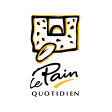Following up on last month’s blog article on Asset Information Management (AIM), we are left with the question: With all this data potentially at your fingertips, what is the optimum way to acquire, organize, and make use of it? In answer to that question, a critical first step in setting up Facility AI for your organization is to ensure accurate data is being collected and utilized throughout the Asset Information Management lifecycle.
Performing accurate asset inventorying, tagging, and assessments on all your major assets and mechanical equipment is crucial. With accurate data, you can significantly improve your operating costs and the time it takes to respond to issues by ensuring you can get the right service/solution provider to address your needs on time. Besides the collected asset data, inventorying includes a condition assessment. This process can lead to the discovery of potential premature asset failure scenarios or of unsafe conditions that should be rectified immediately.
To that end, we have compiled (and continue to add to) an impressive “Asset Glossary.” This database covers many thousands of makes and models of machinery, equipment, and other assets common to a broad range of businesses, including restaurants, grocery chains, convenience stores, retail markets, and real estate firms, among others. Simply by noting the make, model, serial number, and purchase date of an asset within your Property Echo account, we can spare you the legwork and heavy lifting of filling in other blanks related to your assets if provided with proper documentation of your equipment purchases (such as warranty info and expected end of life), as these pieces of information will be uploaded into your unique asset database and can be recalled for future reference with ease.
In addition, we provide our clients with a wide array of easy-to-follow user guides and help desk resources to assist them in collecting accurate information about their assets. After all, who knows your business better than you, the client?
About Asset Inventorying & Tagging Services
That being said, for larger clients the task of compiling detailed asset inventories and tagging those assets can be a daunting one, especially across multiple locations. For that reason, Data Fleet also offers comprehensive asset inventorying and tagging services, in which teams of Data Fleet technicians, experienced in their respective fields, are sent out to client sites to perform the requisite inventorying and tagging, and preparing property condition assessment reports.

Major asset inventorying and tagging is a method of cataloging physical assets to streamline monitoring and management. Tags—each with a unique QR code—are affixed to each asset. When integrated into a CMMS system with other pre-existing data, companies can pull up maintenance schedules, determine an asset’s status, and more. The result is an organized asset of essential information, allowing you to manage assets and equipment now and long term across all your locations.
The following are some of what Data Fleet’s asset inventorying and tagging services organize and store in Facility AI for easy accessibility:
- All the major assets that you own, rent, or lease at multiple enterprise-wide facilities
- Condition of assets
- Warranty information of your critical assets
- Asset Registry date
- Asset make, model, and serial number
About Property Condition Assessments
During the Asset Registry and Tagging process, our inspectors perform a standard assessment of your equipment, machinery, and properties that details its health, and general condition. Because most major equipment, machinery, and property are costly, it is prudent to monitor asset conditions continuously and perform the maintenance tasks to keep them working correctly. As a result, your facilities management team can plan for maintenance, prioritize replacement, and budget accordingly.
Are you ready to put Facility AI to the test? Contact Data Fleet and let’s schedule a meeting.




















